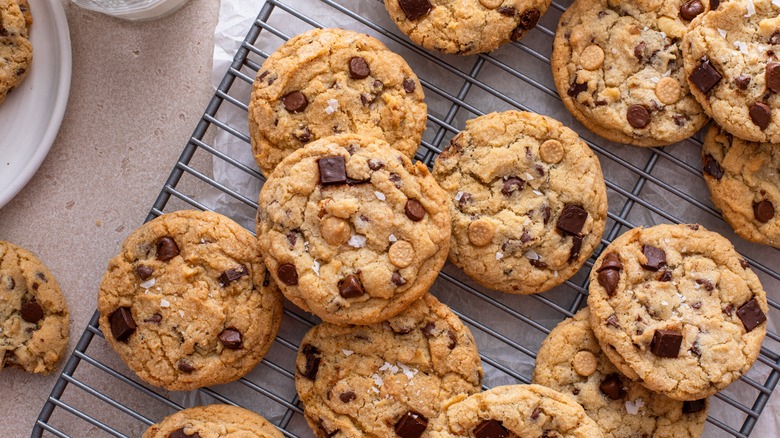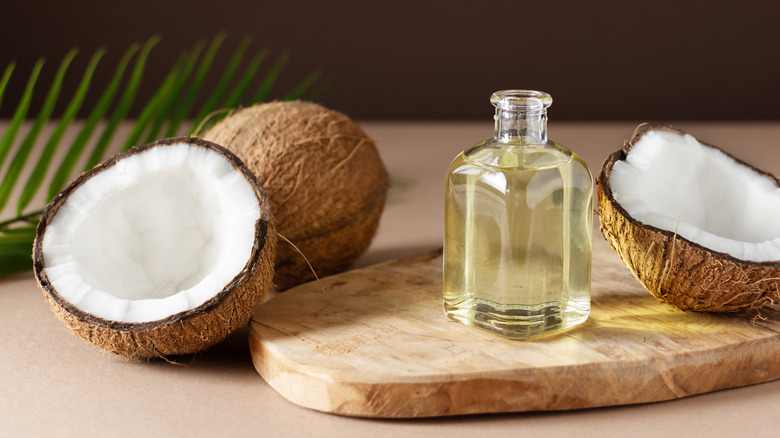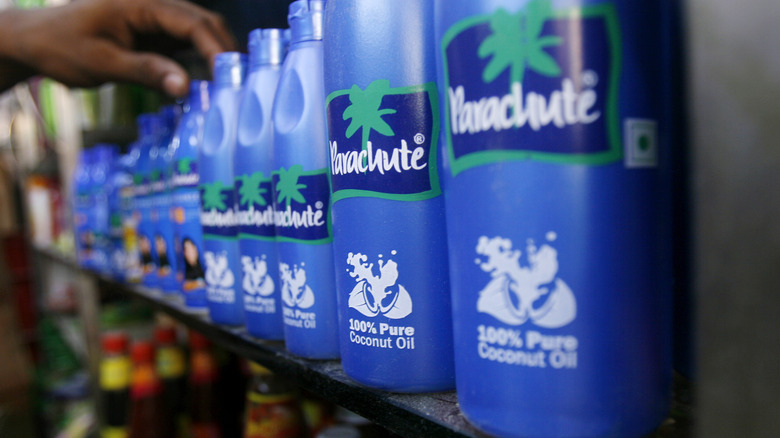The Butter Substitute To Crisp Up Your Cookies
Finding a baking recipe that doesn't include a stick of unsalted butter, let alone one for cookies, can be quite the challenge. Butter not only adds flavor but also acts as a sort of glue that holds everything together in your baked treats. However, despite its obvious versatility, many people are exploring alternatives to regular dairy butter for various reasons, whether due to health reasons or dietary restrictions like veganism.
Fortunately, there are plenty of other fats that can step in for butter in your recipe. They won't taste the same, of course, but they'll still do a good job at flavoring your baked goods and binding the ingredients together. One standout option is coconut oil. Not only can it seamlessly replace butter in a 1:1 ratio — no complicated math required — but it also adds a lovely nutty flavor to whatever you're making. Plus, there are some nice added benefits you won't get with regular butter, like crispier cookies. Here's what you need to know before you set out to bake your first cookie batch with coconut oil!
Coconut oil is almost pure fat
If you're a fan of crunchy cookies, then coconut oil will most likely be your best friend going forward. Unlike dairy butter, which is made up of only around 80% fat, coconut oil is nearly pure fat — around 99%, per the USDA. With such a low moisture content, cookies baked with coconut oil come out of the oven quite dry and crumbly, giving them a far crispier texture than cookies baked from normal butter.
However, this dryness is also a drawback in itself. Since the dough lacks moisture, it tends to be stiff and doesn't spread much during baking, which you'll experience for yourself the first time you experiment with the ingredient. You might need to shape the dough manually before placing it in the oven to avoid ending up with unsightly lumps in your cookies. Sure, they'll taste pretty delicious, but if you plan to gift the cookies to your neighbors and friends, you probably don't want them to look misshapen or lumpy.
Fortunately, you can remedy this by adding a tablespoon or two of liquid to the dough — either water or milk. This will rehydrate the flour and make it easier to shape. It'll spread better on the baking sheet, too!
Keep note of the type of coconut oil you're buying
When browsing through the various bottles of coconut oil in grocery store aisles, you'll come across two main types: Unrefined (or virgin) coconut oil and refined coconut oil. Be extra careful when you choose between them because each type will have a pretty sizable impact on the flavor of your cookies.
Virgin coconut oil is made from fresh coconut meat and undergoes minimal processing. As the name implies, it retains a very strong coconut taste and aroma. If you're aiming for coconut-flavored cookies, like Samoas (which are arguably among the best Girl Scout cookie flavors), virgin coconut oil is the way to go. On the flip side, if you're planning on giving your cookies some other flavors (like orange zest chocolate chip) and don't want the coconut taste to detract from these flavorings, you'd want to buy refined coconut oil. This type of oil is pressed from dried coconut meat and processed to eliminate its nutty flavor and scent, resulting in a very neutral-tasting oil that contributes nothing but fat and binding power to your recipe.
If you choose coconut oil as a butter substitute for your cookie recipe, choosing between unrefined and refined is the fullest extent of the trouble it will give you. Since even this part is quite straightforward, you can see the reason why it's such a popular choice for bakers. And if you give it a shot, maybe it'll be your favorite, too.


